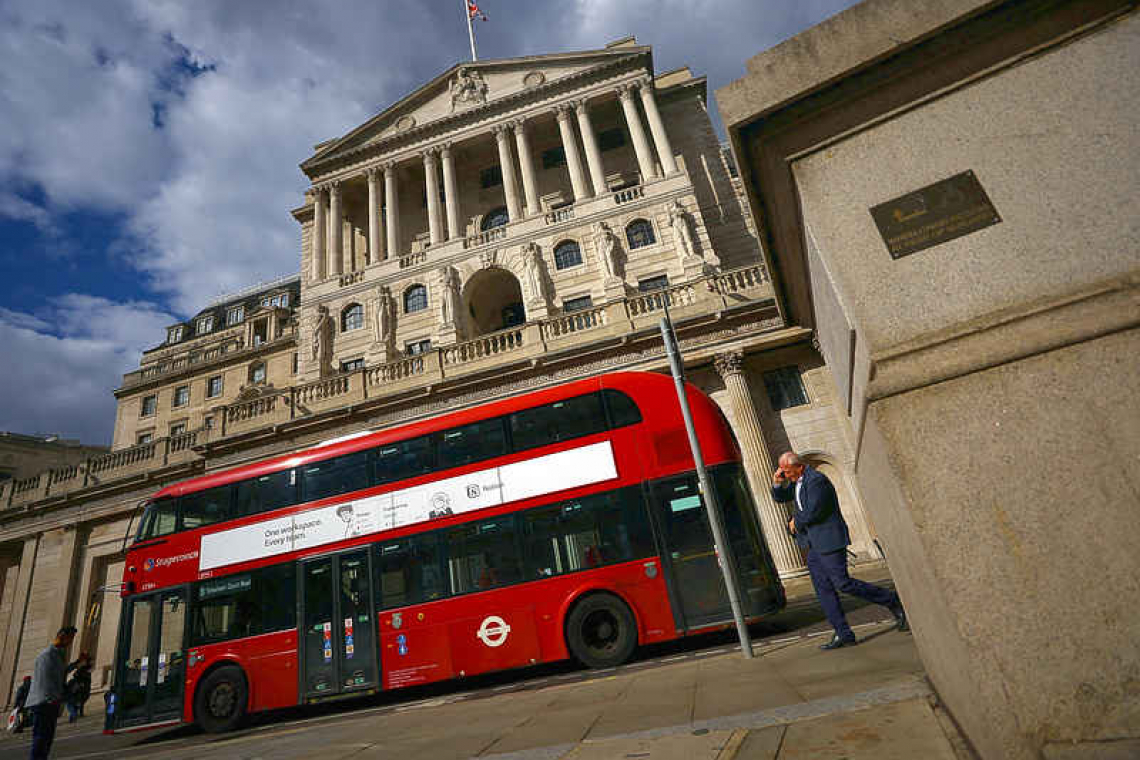LONDON--The Bank of England sought to quell the fire-storm in Britain's bond markets, saying it would buy as much government debt as needed to restore order after new Prime Minister Liz Truss's tax cutting plans triggered financial chaos.
Having failed to cool the sell-off with verbal interventions over the previous two days, the British central bank announced on Wednesday the immediate launch of an emergency bond-buying programme aimed at preventing the market turmoil from spreading. "Were dysfunction in this market to continue or worsen, there would be a material risk to UK financial stability," the BoE warned.
Since finance minister Kwasi Kwarteng outlined a plan on Friday for tax cuts on top of an energy bill bailout, all funded by a huge increase in government borrowing, UK mortgage markets have frozen, pension funds have dumped gilts and corporate borrowing costs have leapt.
One source at the Treasury said Kwarteng would not resign, and the government would not reverse its policy. A second person familiar with the situation said Truss still backed Kwarteng and they would announce further economic reforms soon.
The BoE will now buy up to 5 billion pounds ($5.31 billion) a day of British government bonds of at least 20 years' maturity starting on Wednesday and running until Oct. 14. Its announcement, which represented a sudden reversal of plans to sell bonds it had amassed since the global financial crisis of 2008-9, immediately pushed down borrowing costs.
The 30-year gilt yield was set for its biggest drop in records going back to 1992. The pound pared earlier losses to rise against the dollar. At $1.0860, it was up 1.2% on the day and down 11% in the last three months.
The BoE said it would return to its plan to sell bonds at the end of October. But the political and economic shockwaves that have triggered mounting alarm in foreign capitals continued to reverberate. Kwarteng sought to reassure investment bank executives in a meeting described by attendees as nervous, and two senior BoE officials pulled out of public events scheduled for Wednesday and Thursday.
One source at the meeting said Kwarteng had asked the assembled finance bosses what they could do to calm markets. "It wasn't lost on them that he put the problem in their laps," this source said.
Investors and economists have said the government's plan to wait until Nov. 23 to set out its full debt-cutting policy, and the fact the BoE's next rate announcement is not scheduled until Nov. 3, seemed at odds with the market frenzy. "Truss and Kwarteng are now facing a severe economic crisis as the world's financial markets wait for them to make policy changes that they and the Conservative Party will find unpalatable," Eurasia Group's Mujtaba Rahman said.
Kwarteng's plans for deep tax cuts and deregulation to snap the economy out of a long period of stagnation were seen as a return to Thatcherite and Reaganomics doctrines of the 1980s. But they have caused panic among some investors and disquiet among many lawmakers of the ruling Conservative Party.
Such were the pressures in the markets that pension schemes were selling gilts to meet emergency collateral calls on under-water derivatives positions, or selling to reduce their exposure as they could not meet those cash calls, pensions advisers said. "There are schemes running out of cash at the moment," one pensions consultant said ahead of the BoE intervention. Another person familiar with the decision confirmed that the BoE moved due to problems facing pension funds, the main holders of long-dated gilts.
The BoE said the purchases were designed to restore orderly market conditions. "The purchases will be carried out on whatever scale is necessary to effect this outcome."
Foreign government officials and international financial institutions have started to go public with their criticism. In a rare intervention over a G7 country, the International Monetary Fund urged Truss to reverse course.
U.S. bond giant PIMCO said it would have less confidence in sterling than it did before last Friday's announcement. Spain's Economy Minister Nadia Calvino was more blunt, calling the policy a disaster.
So far the government has refused to budge. Kwarteng, an economic historian who was business minister for two years and a free-marketeer by conviction, has insisted that tax cuts for the wealthy alongside support for energy prices are the only way to reignite long-term economic growth.







